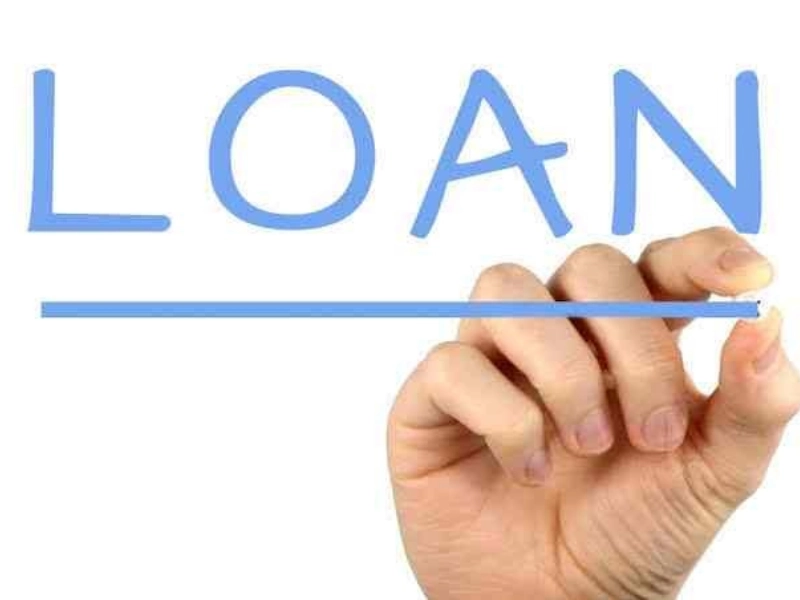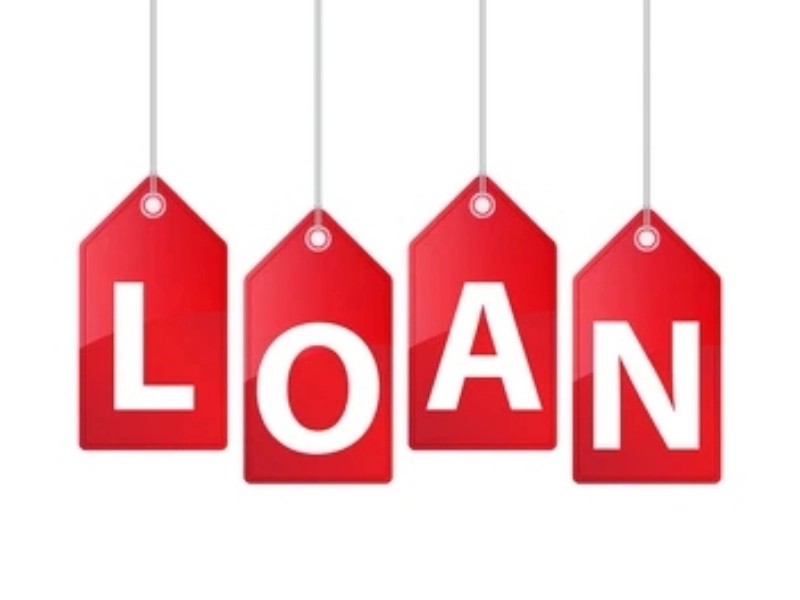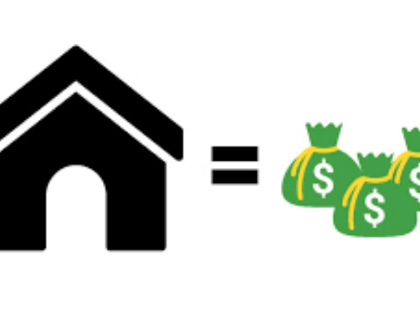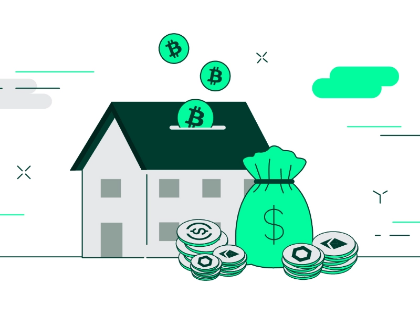Loans for Debt Consolidation: Merging Several Debts Into a Single Monthly Payment
It can be difficult to manage several accounts and debt payments. Consolidating all of your debt into a single monthly payment with a debt consolidation loan might be helpful. Banks, credit unions, and internet lenders all offer personal loans. They provide customizable terms for repayment and allow you to pre-qualify for individualized rates without requiring a hard credit pull.
Rates of interest
 Lenders utilize your credit ratings to assess your eligibility and negotiate the terms of your debt consolidation loan. You'll probably be required to pay higher interest rates if your credit score is not very good.
Usually, when you apply for a debt consolidation loan, your credit report is subject to a rigorous investigation, which might temporarily drop your credit score by a few points. On the other hand, over time, timely monthly payments on a new loan ought to raise your credit score. An existing equity line of credit or a balance-transfer credit card with 0% interest could also be used for debt consolidation. While there is no need for a credit check with these options, there can be additional costs like origination or prepayment penalties. To determine if this approach makes sense for you, carefully weigh the costs and benefits. As an alternative, you can negotiate with creditors or settle existing debts with cash to lower your debt without taking out a loan.
Lenders utilize your credit ratings to assess your eligibility and negotiate the terms of your debt consolidation loan. You'll probably be required to pay higher interest rates if your credit score is not very good.
Usually, when you apply for a debt consolidation loan, your credit report is subject to a rigorous investigation, which might temporarily drop your credit score by a few points. On the other hand, over time, timely monthly payments on a new loan ought to raise your credit score. An existing equity line of credit or a balance-transfer credit card with 0% interest could also be used for debt consolidation. While there is no need for a credit check with these options, there can be additional costs like origination or prepayment penalties. To determine if this approach makes sense for you, carefully weigh the costs and benefits. As an alternative, you can negotiate with creditors or settle existing debts with cash to lower your debt without taking out a loan.
Charges
 A debt consolidation loan may come with additional fees in addition to the loan origination fee. In order to decide how much a borrower can afford to borrow as well as the applicable interest rates, lenders review the credit reports and scores of the applicant. High-credit-score borrowers can often get lower interest rates and even be eligible for larger loan amounts than those with lower scores.
Your monthly payments could be made easier with a debt consolidation loan, which would also save you money on interest. It won't, however, pay off your debt or resolve the issues that caused your financial difficulties. Determine the best course of action for long-term debt reduction by reviewing your spending patterns and evaluating how you came to be in debt. Additionally, you should only take out a debt consolidation loan if you can comfortably pay off the monthly debt service. If not, think about alternative debt alleviation strategies that don't entail obtaining additional credit. A hard inquiry for a personal loan is necessary, and this can temporarily lower your credit score.
A debt consolidation loan may come with additional fees in addition to the loan origination fee. In order to decide how much a borrower can afford to borrow as well as the applicable interest rates, lenders review the credit reports and scores of the applicant. High-credit-score borrowers can often get lower interest rates and even be eligible for larger loan amounts than those with lower scores.
Your monthly payments could be made easier with a debt consolidation loan, which would also save you money on interest. It won't, however, pay off your debt or resolve the issues that caused your financial difficulties. Determine the best course of action for long-term debt reduction by reviewing your spending patterns and evaluating how you came to be in debt. Additionally, you should only take out a debt consolidation loan if you can comfortably pay off the monthly debt service. If not, think about alternative debt alleviation strategies that don't entail obtaining additional credit. A hard inquiry for a personal loan is necessary, and this can temporarily lower your credit score.
Cash
 One monthly loan payment can help you manage your finances more easily and lower your chance of skipping payments, which can lower your credit score. You must, however, confirm that the new debt consolidation loan payment amount is easily covered by your cash flow.
You may incur late payment penalties and additional interest if you are unable to make your monthly loan payment. Your credit may suffer if you skip payments on a debt consolidation loan, and many lenders notify credit bureaus of late payments.
Alternatives to debt consolidation should be taken into consideration if you're having trouble meeting your monthly debt service obligations. You might find it helpful to address the underlying problems that caused your financial difficulties with a debt management plan or credit counseling. A debt management plan usually includes developing a budget that accommodates your financial circumstances and managing your finances in conjunction with a nonprofit credit counselor. You might be able to obtain a low-interest debt consolidation loan with the assistance of a credit counselor.
One monthly loan payment can help you manage your finances more easily and lower your chance of skipping payments, which can lower your credit score. You must, however, confirm that the new debt consolidation loan payment amount is easily covered by your cash flow.
You may incur late payment penalties and additional interest if you are unable to make your monthly loan payment. Your credit may suffer if you skip payments on a debt consolidation loan, and many lenders notify credit bureaus of late payments.
Alternatives to debt consolidation should be taken into consideration if you're having trouble meeting your monthly debt service obligations. You might find it helpful to address the underlying problems that caused your financial difficulties with a debt management plan or credit counseling. A debt management plan usually includes developing a budget that accommodates your financial circumstances and managing your finances in conjunction with a nonprofit credit counselor. You might be able to obtain a low-interest debt consolidation loan with the assistance of a credit counselor.
Timetable
 Your interest rates might be lowered with debt consolidation, saving you money. Don't forget to look into all of your possibilities, including loan conditions, costs, and credit criteria. A list of your present obligations and payments should be made in order to assess if a debt consolidation loan would be a good fit for your circumstances.
By lowering your credit use, a debt consolidation loan can lower your debt-to-income ratio and raise your credit scores. However, by extending your repayment term, rolling over previous loans into a new loan will lower your credit scores. For this reason, it's crucial to consider all of your alternatives before applying for a debt consolidation loan.
Verify your credit score and report any mistakes before applying. If you decide to take out a debt consolidation loan, be sure your monthly debt service is comfortably covered by your cash flow. If you default on a debt consolidation loan, you could pay more in costs and risk damaging your credit.
Your interest rates might be lowered with debt consolidation, saving you money. Don't forget to look into all of your possibilities, including loan conditions, costs, and credit criteria. A list of your present obligations and payments should be made in order to assess if a debt consolidation loan would be a good fit for your circumstances.
By lowering your credit use, a debt consolidation loan can lower your debt-to-income ratio and raise your credit scores. However, by extending your repayment term, rolling over previous loans into a new loan will lower your credit scores. For this reason, it's crucial to consider all of your alternatives before applying for a debt consolidation loan.
Verify your credit score and report any mistakes before applying. If you decide to take out a debt consolidation loan, be sure your monthly debt service is comfortably covered by your cash flow. If you default on a debt consolidation loan, you could pay more in costs and risk damaging your credit.












